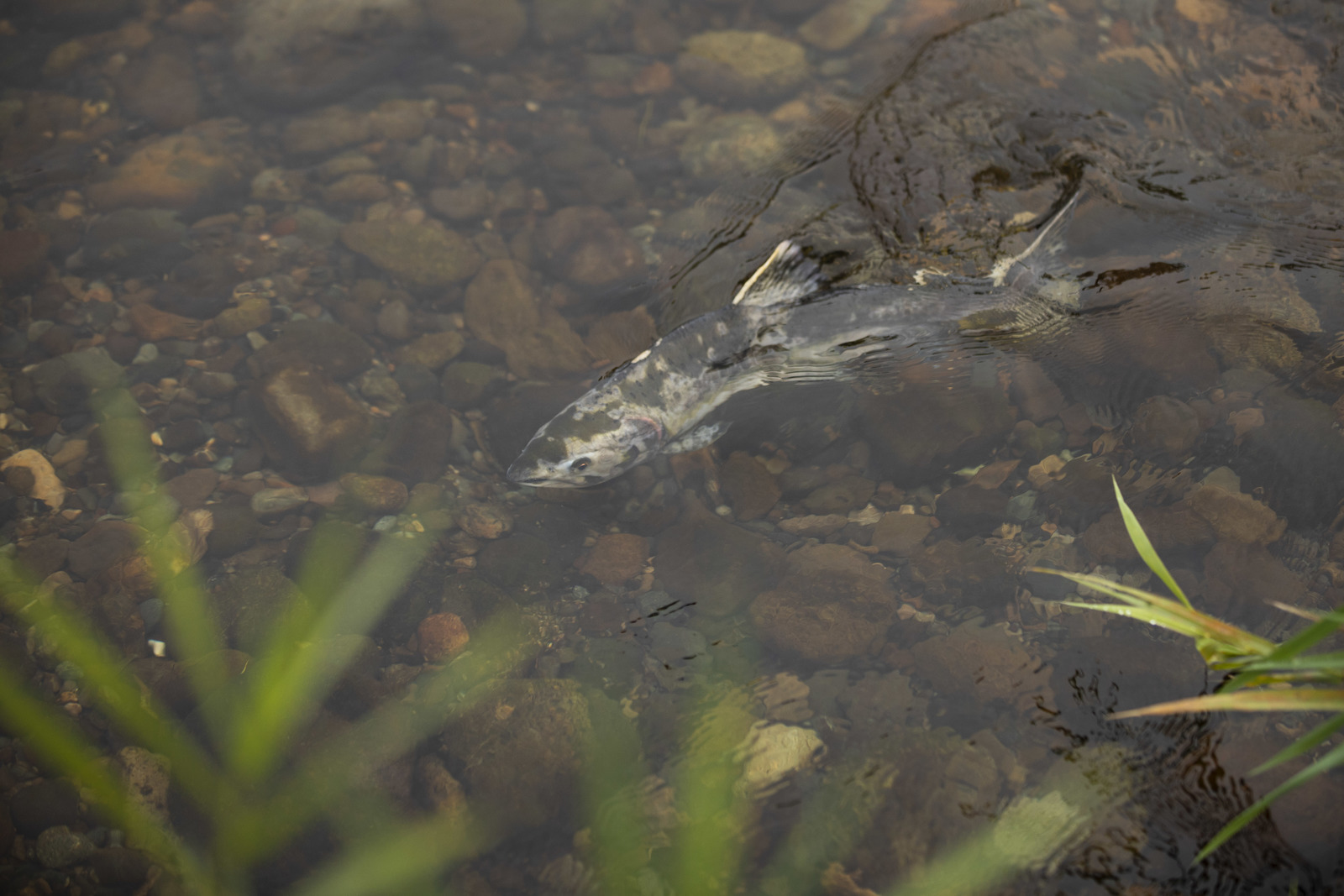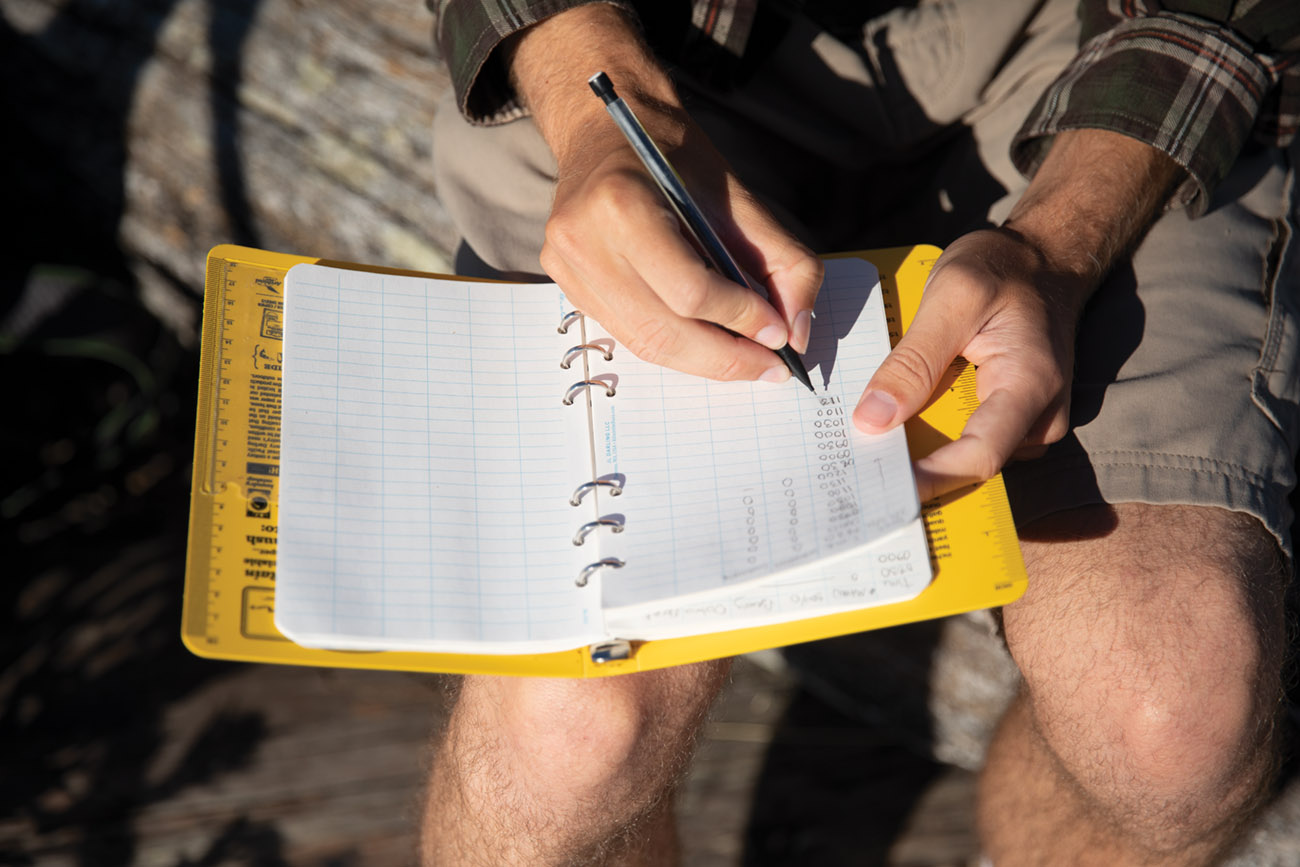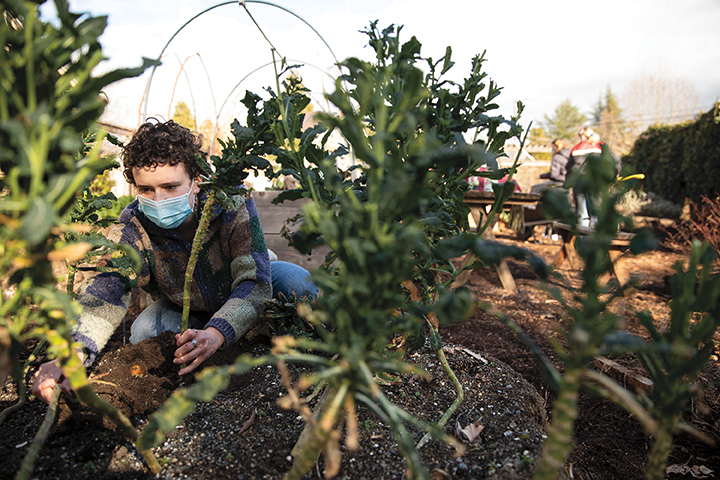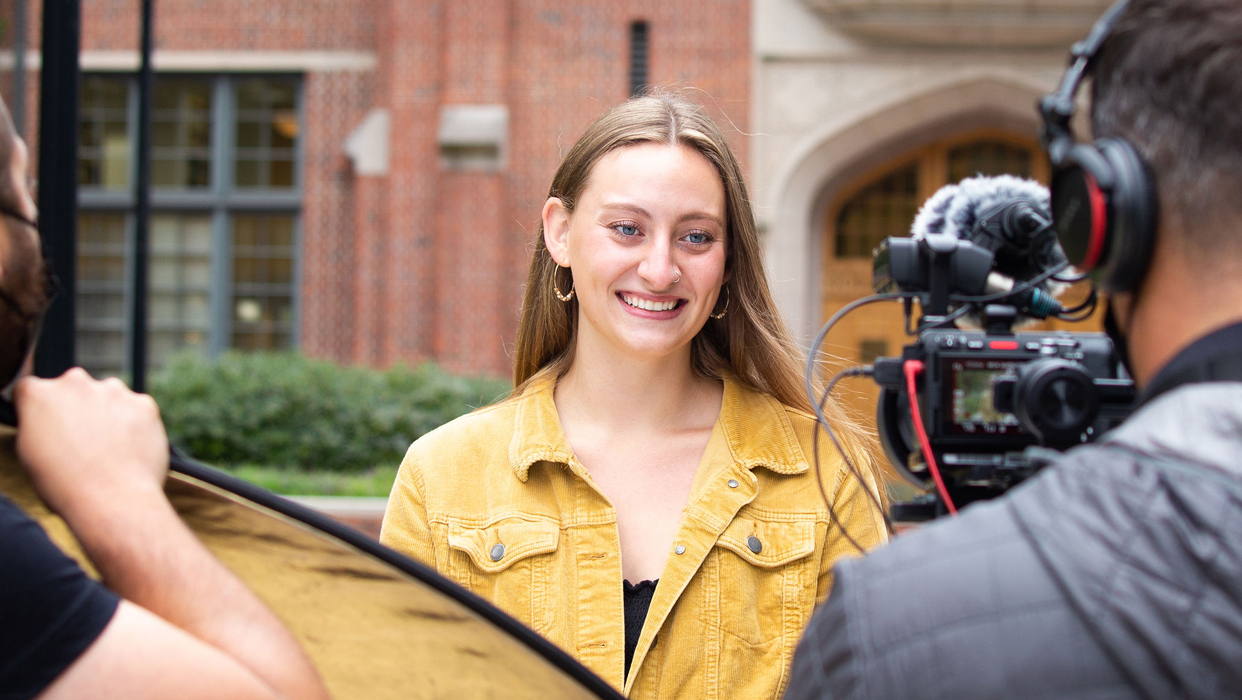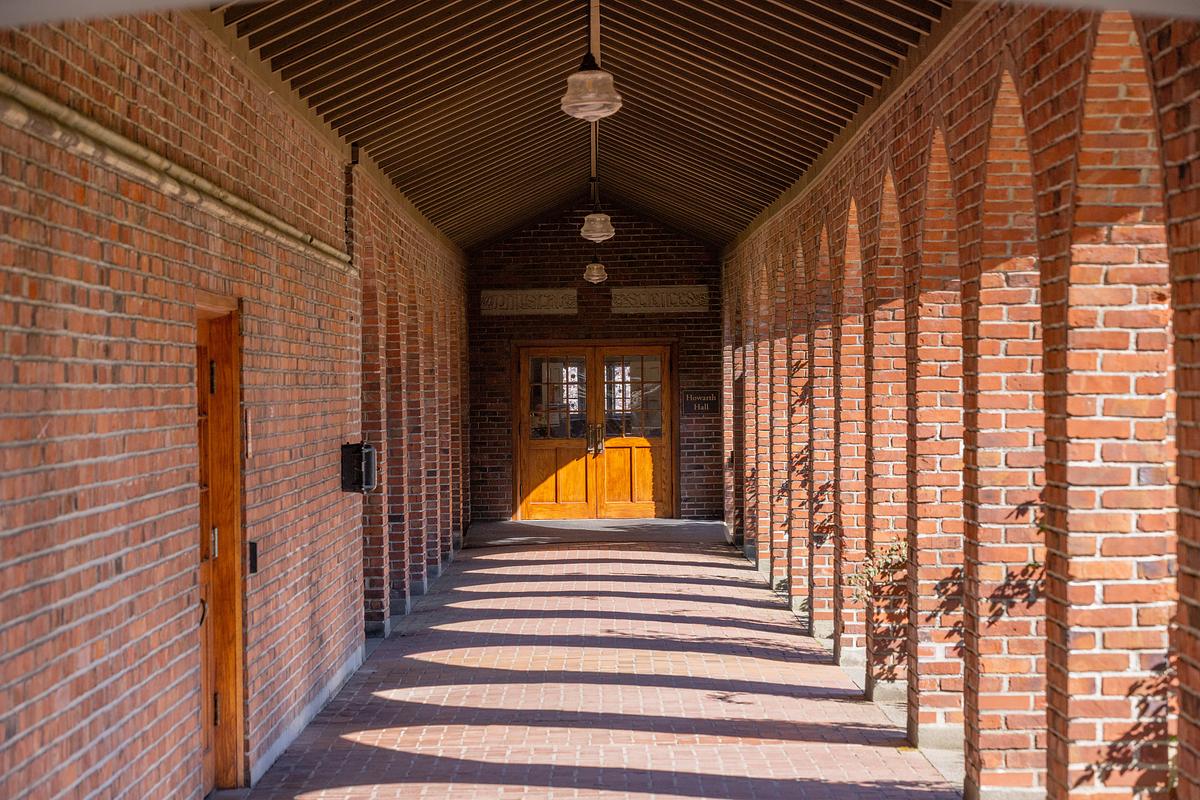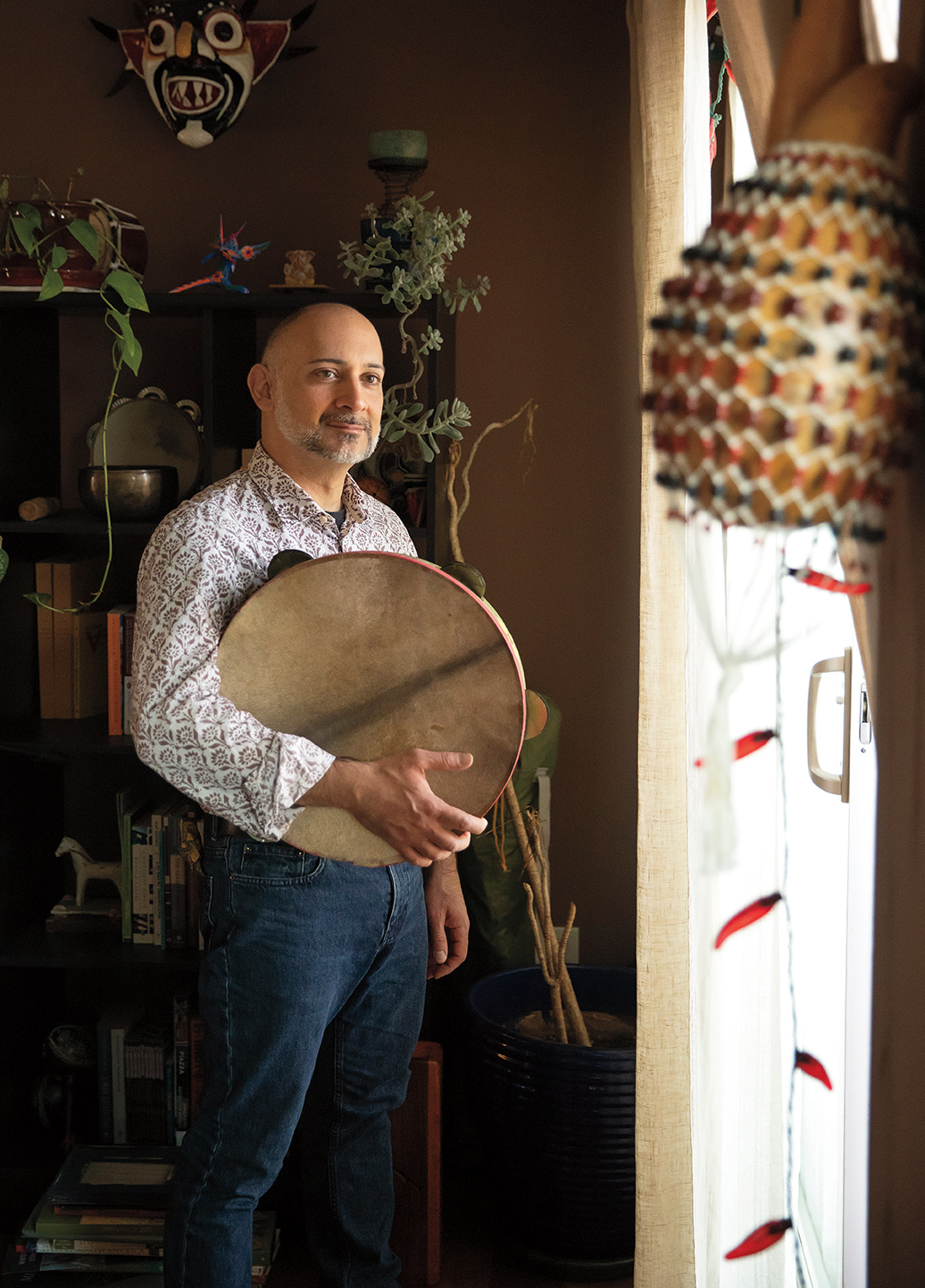A class introduces Puget Sound students to environmental policy by examining the challenges facing the Pacific Northwest's most famous fish.
Perched on a log above the Mashel River a few miles from the Puget Sound campus, Daniel Sherman explains the complex and often harrowing plight of perhaps the most iconic creature in the Pacific Northwest: the salmon.
Decades of logging have removed trees and gravel crucial to salmon’s survival, Sherman says. In addition, the water temperature is rising and the river’s levels are low—the log Sherman is sitting on in the video, alongside his colleague, geology professor Kena Fox-Dobbs, is actually part of an “engineered logjam” to impede the river’s flow and help restore some of the salmon’s natural habitat.
What Sherman—professor of environmental policy and decision making and director of the university’s Sound Policy Institute—and his colleagues hope to accomplish is to use the story of the salmon to tell a wider story about the Pacific Northwest. And they’ve structured an entire class, ENVR 200, Introduction to the Environment, around that narrative, supplementing classroom work with a series of field trips to discuss the environmental history— and fraught future—of the region.
